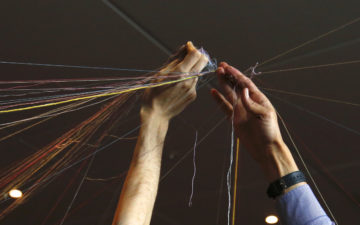Country of Residence
Discipline(s)
GYA Roles
Institution
Philips Group Innovation / Philips Africa
Research Interests
N/A
Biography
Maarten van Herpen was appointed as Head of the Philips Africa Innovation Hub in September 2013, making him responsible for Philips’ pan-African research and innovation projects across the continent. He is leading a team of scientists and (social) entrepreneurs with the mission to improve the lives of people in Africa through meaningful innovation. His objective is to adapt the Philips product portfolio to meet the specific needs of the local market in Africa, by scouting for new innovations and by developing these innovations into businesses.
Maarten van Herpen has been working at Philips as scientist, inventor and corporate entrepreneur since 2004. He has been a pioneer in a wide variety of topics, ranging from pure technology to healthcare and LED lighting. He currently holds 188 patent applications which he generated in the past 8 years, of which more than 100 are already granted in the US. This makes him one of the top inventors at Philips.
He has founded and managed 3 corporate ventures through the first stages of development within Philips’ corporate entrepreneurship programs.
Maarten Van Herpen, born in The Netherlands in 1976, has a PhD in Physics and a Master in Business Innovation. His combined background in physics and business has allowed him a unique perspective to use his creativity to do new technical inventions, and subsequently to take these inventions to the market with a new business model.
In 2013, he was honored by the World Economic Forum as one of the Global Young Scientists 2013, a group of scientists with a proven track record of advancing the frontiers of science, engineering or technology in areas of high societal impact; all under the age of 40. In 2014 he became a member of the WEF Global Agenda Council on Social Innovation.
“What I personally find exciting about doing innovation in Africa is that we have the opportunity to innovate and create completely new solutions and new ways of working; this makes it much easier to create breakthrough innovations”, says Maarten Van Herpen. “For example, in Africa there is a huge shortage of doctors, and that is not going to change anytime soon. So we need to innovate to empower other health workers to become care givers, while at the same time lowering the cost of care. I believe that in this way we will create new healthcare innovations that will become the solutions for the future in the rest of the world, where healthcare spending is now rising to unsustainable levels.”
Activities
